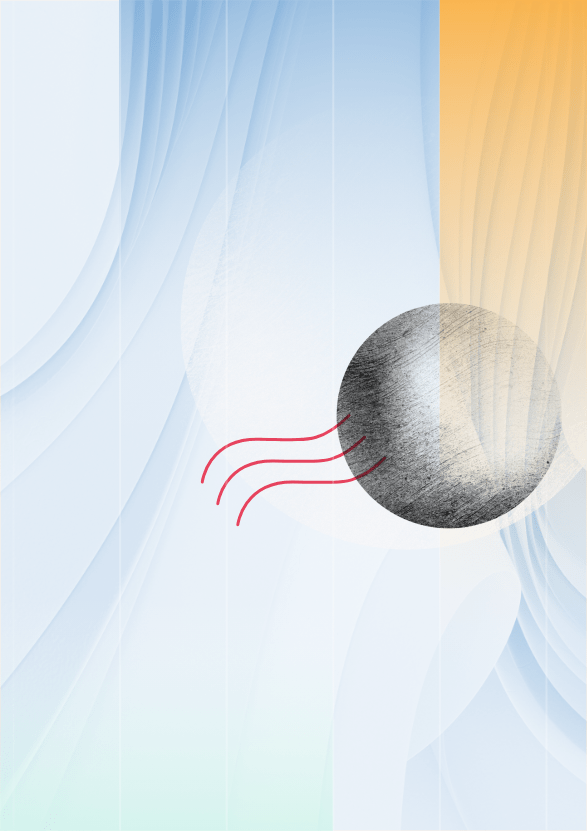

News literacy: Strong against disinformation
Julia Tegeler
To curb disinformation, the news literacy of media users is crucial. Strengthening it among the population is challenging. Low-threshold and everyday educational programmes — such as those we tested in the “faktenstark” pilot project — and closer collaboration among stakeholders present promising approaches.
News literacy: Why it’s important and where it falls short
How well people can assess the quality and reliability of digital information influences what content they trust and on what basis they form an opinion. Anyone who wants to curb the spread of disinformation should therefore also focus on citizens’ digital news and information literacy. It comprises a bundle of skills that enable participation in democratic digital public spheres: Those who are news literate understand what role digital public spheres play for democracy and how they function. They can recognise their own information needs, research digital information, and assess its relevance, reliability, and intention. Furthermore, they can engage with the content of the information, process it, comment on it, share it. In Germany and other European countries, the level of news literacy in the population is rather low and varies greatly depending on age, level of education, and media usage behaviour. Political attitudes and values also influence how news are consumed and evaluated. A study by the Stiftung Neue Verantwortung states that, for far too long, citizens have been left alone to find their own way in increasingly complex media environments. Although there are many initiatives and promising approaches worldwide that promote digital news literacy, their impact is too often limited. There are several reasons for this:
- Hard-to-reach target groups: Certain target groups – such as adults in general, elderly people, people with little education – are difficult to reach. For this reason, many programmes focus on children and young people, while adults are still often neglected.
- Limited resources: Educational work suffers from scarce resources, precarious working conditions, and limited funding. This makes it difficult to sustainably establish proven concepts and limits their widespread application.
- Higher demands due to digital public spheres: Digital public spheres place higher demands on the media literacy of individuals because user-generated content is displacing professionally prepared and verified information. Information is often no longer shared and categorised by journalists. Instead, each media user must decide for themselves which information is trustworthy and which they want to believe, consume, or share.
- Inadequate concepts: Many educational programmes still fall short conceptually. Teaching skills for checking and evaluating information is important. However, more is needed for citizens to be able to counteract the democratically threatening influences of disinformation: In addition to strategies for self-help, technological, social, and cognitive skills as well as democratic competence are needed.
Four fields of action to strengthen news literacy
To tackle these challenges, initiatives to strengthen digital news and information literacy should focus more strongly on four fields of action.
- Create a variety of offers that are relevant to everyday life to reach as many people as possible
To reach as many people as possible, a wide range of educational offers are needed: From low-threshold information events and educational workshops for a broad target group to digital street work or in-depth training for specific groups. The offers should convey content that is relevant to everyday life and meet people where they are. Particularly hard-to-reach target groups such as the poorly educated, the elderly, or people with low media confidence can be reached in places they regularly visit, such as community centres, their workplaces, sports and other outfits, and leisure facilities. Cooperation with social institutions, employers, local initiatives, and public libraries is crucial for reaching people in their daily lives. In our pilot project, called faktenstark, we held workshops on dealing with disinformation at various locations. We went to vocational schools, volunteer training days, sports and other outfits, public libraries, trade unions, charities, and even breweries. This allowed us to reach different target groups: From trainees and volunteers to employees of civil society organisations, local politicians, and pensioners. We used a modular concept to adapt the workshops in terms of time and content. Experience has shown that such low-threshold educational offers can reach and bolster the confidence of many people who have fundamental trust in democracy but wonder what they can do to counter disinformation on the internet or in their own environment.
To reach adults in general, corresponding educational offers should also be integrated into further vocational training. The Business Council for Democracy’s programme is a successful example of this. For work with children and young people and the target group of educational professionals, there are many good materials, and further training offers from initiatives such as klicksafe, klickwinkel, weitklick as well as from our two faktenstark cooperation partners codetekt and Amadeu Antonio Foundation.
- Pool resources to improve sustainability and reach
Collaboration can be an answer to limited resources: Numerous national and international initiatives and projects pursue similar goals and have developed effective approaches. And yet they often work in parallel – partly because there is not enough time in everyday working life to exchange ideas and initiate collaborations. However, it is precisely through closer cooperation that strengths can be pooled, and synergies created. Successful approaches could be combined, scaled up, and integrated more sustainably into existing structures. Through a coordinated approach, educational institutions, civil society organisations and initiatives, media companies, and political decision-makers can each contribute their strengths. The aim should be to join forces and take a coordinated approach to disseminate effective initiatives to strengthen news literacy and anchor them sustainably in existing structures.
At faktenstark, for example, three different cooperation partners have joined forces. This enabled us to use technical know-how to develop digital tools such as our Trust-O-Mat and our chat bot Klaro, as well as media education expertise, and comprehensive expertise in political education work. We were also able to draw on various networks for the communication of the project and the implementation of workshops.
- Teach self-help strategies to strengthen skills in dealing with disinformation
Media users should be taught strategies with which they can assess the trustworthiness of information themselves in everyday life and recognise manipulative content. Approaches such as trust-checking and pre-bunking are promising here. In our faktenstark-workshops, we therefore worked with both approaches to strengthen participants’ ability to deal with disinformation. Trust-checking enables media users to assess the credibility of information quickly and as objectively as possible using journalistic quality criteria. Aspects such as sources, content, medium, quotes, and visual representations are checked. Pre-bunking aims to educate people about how disinformation works. The idea is to “vaccinate” media users against disinformation and thus build up immunity even before they encounter specific cases.
To this end, pre-bunking explains typical manipulative techniques and misleading narratives so that people can then recognise when information is based on such narratives or contains certain rhetorical patterns. How effective pre-bunking is is still under discussion. Ultimately, it is also advisable to use a variety of methods in educational work to deal with disinformation and to teach different strategies. This is not only the task of educational institutions or civil society initiatives. The media can also make an important contribution by explaining journalistic quality criteria and showing how they research, check, and process information. Collaborative approaches in which players from the media, education and research work together, such as the “UseTheNews” initiative to promote news literacy in the digital age, are particularly promising.
- Combine news and democracy literacy to strengthen real resilience
Teaching media users how to apply strategies for checking and assessing information is an important first step. However, this alone is not enough to mitigate the influence of disinformation that threatens democracy. Educational programmes should not only teach skills, but also encourage people to engage with the topic of “disinformation” and create an understanding of the disinformation ecosystem. It is important to understand the structures, goals, strategies, and modes of action of disinformation and to shed light on the reasons why many people believe it. This is also a central aspect of educational work in our pilot project faktenstark: In the workshops, we not only teach specific strategies for dealing with disinformation – such as trust-checking – but also take a broader view of disinformation – especially regarding democracy.
Another aspect that is important in educational work against disinformation is the promotion of basic democratic attitudes and skills. This includes a willingness to inform oneself about politics, an appreciation of freedom of opinion, freedom of the press, and journalism, basic trust in democracy, and tolerance towards other opinions. Those who regularly inform themselves about political developments can recognise disinformation more easily. Those who value freedom of expression recognise the importance of diverse information and are more likely to engage with different perspectives. This helps to avoid jumping to conclusions and to counteract confirmation bias.
In a nutshell, promoting news literacy alone ultimately falls short. It is about strengthening democratic competence. This requires continuous and integrated educational work and is a task for all of us in society. In addition to educational institutions, politics, the media, and businesses are also called upon here. Politicians should not only conduct objective, fact-based, and fair debates, but also create good framework conditions for political education. In terms of corporate democratic responsibility, companies can facilitate participation and promote programmes that support critical thinking and social engagement. Media can provide information about journalistic formats (“What is a commentary?”, “What characterises a factual article?”) or explain journalistic working methods (How is news collected, checked, and presented?). This transparency can strengthen trust in the media and make it clear how important quality journalism is for an informed society and that it offers more reliable information than other sources.
Conclusion
Information and news literacy in the digital society are crucial for mitigating the spread of disinformation and strengthening democratic discourse. The current challenges require more effort than before: Relatable and diverse educational programmes, more collaboration, the teaching of self-help strategies, and integrated approaches that understand news literacy as a component of political education are promising here.




